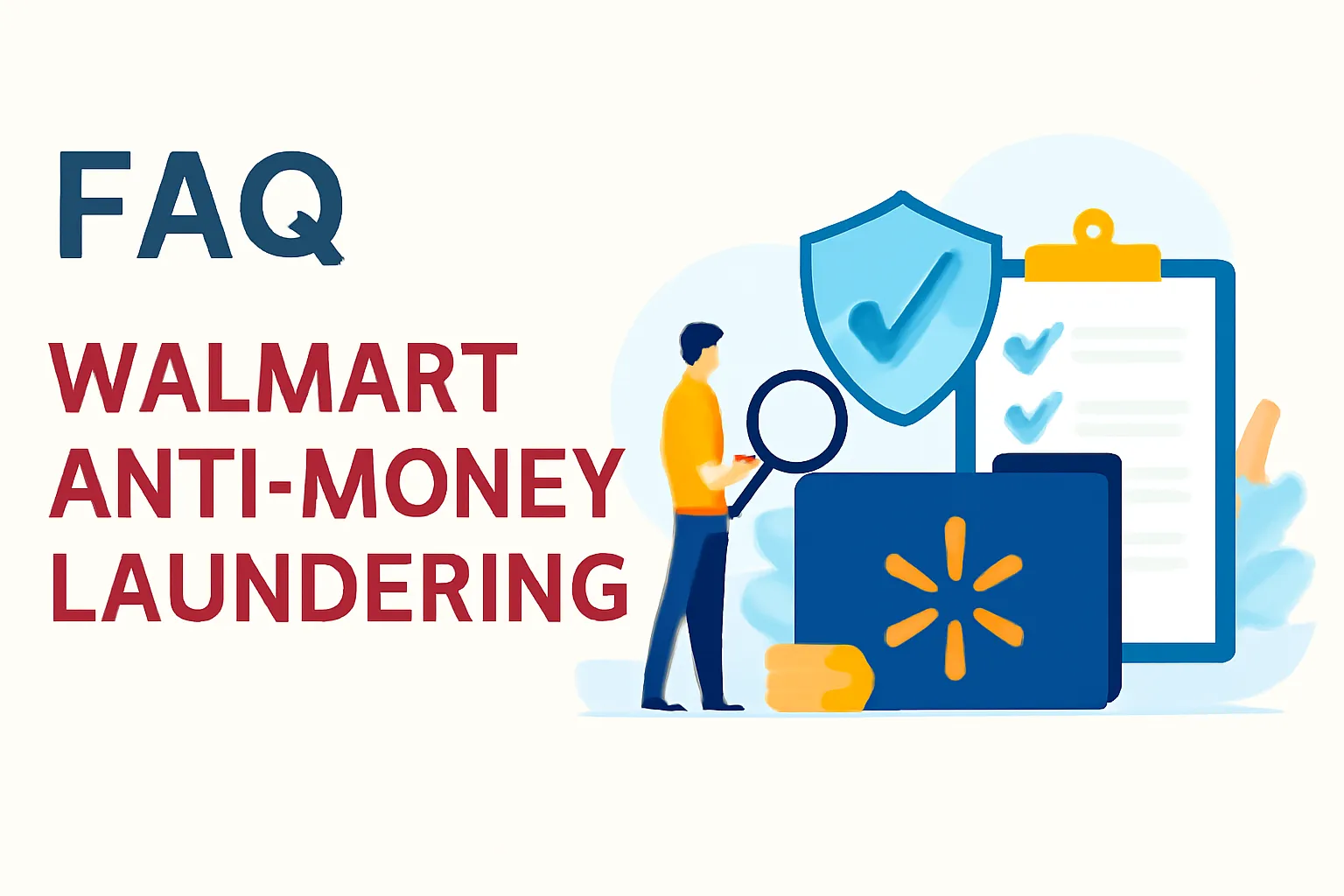Table of Contents
Walmart, like any other major corporation, has to adhere to strict regulations regarding anti-money laundering (AML) practices. Money laundering is the process of concealing the origins of illegally obtained money, typically by means of transfers involving legal businesses. Walmart, as a large multinational retailer, is required to implement AML measures to detect and prevent such activities in its operations.
Here are some common questions and answers related to Walmart’s Anti-Money Laundering (AML) policies and practices:
What is Anti-Money Laundering (AML)?
Anti-Money Laundering (AML) refers to a set of regulations, laws, and procedures designed to prevent and detect money laundering activities. Money laundering involves disguising the origins of illegally obtained money, often by passing it through legitimate business channels to make it appear legal.
AML practices are put in place to ensure businesses, especially financial institutions and retailers like Walmart, comply with laws that require the identification of potentially suspicious transactions and reporting them to authorities.
Why does Walmart need to implement AML practices?
Walmart, as a global corporation, needs to implement AML practices to comply with national and international regulations. These laws are designed to prevent illegal activities, such as money laundering and terrorist financing, from infiltrating the financial systems.
By adhering to AML regulations, Walmart ensures that it does not become an unwitting vehicle for such activities. The company also protects itself from financial penalties, reputational damage, and other legal consequences.
What are Walmart’s responsibilities under AML laws?
Walmart is responsible for:
- Monitoring Transactions: Identifying suspicious or unusual financial activities that may indicate money laundering.
- Customer Due Diligence (CDD): Ensuring that customers’ identities are verified and maintained under the law.
- Reporting Suspicious Activities: When unusual or suspicious transactions are detected, Walmart must report them to the relevant authorities, such as the Financial Crimes Enforcement Network (FinCEN) in the United States.
- Employee Training: Ensuring that employees, especially those in finance-related roles, are trained to recognize and report suspicious activities.
How does Walmart detect money laundering activities?
Walmart uses various methods to detect potential money laundering activities:
- Transaction Monitoring Systems: Walmart employs technology that scans transactions for patterns or activities that may indicate illegal activities. These include large cash deposits, rapid or unusual patterns of money transfers, or frequent transactions involving high-risk regions.
- Customer Profiles and Behavior: Walmart tracks customer behavior and compares it to typical purchasing patterns. This helps to flag unusual purchases or activities that may seem out of the ordinary.
- Know Your Customer (KYC): Walmart conducts KYC checks to verify the identities of customers, ensuring they are legitimate and not involved in criminal activities.
What is Walmart’s policy on reporting suspicious transactions?
Walmart has a policy in place to report suspicious transactions promptly. If a transaction is flagged by the monitoring system as potentially suspicious, it triggers an internal investigation. If there is reasonable cause to believe the transaction involves illicit activity, Walmart is required by law to file a Suspicious Activity Report (SAR) with the Financial Crimes Enforcement Network (FinCEN) or other relevant regulatory bodies. This helps law enforcement track and investigate potential criminal activities.
What are some examples of suspicious activities Walmart might report?
Some examples of suspicious activities that Walmart may report include:
- Large, Unexplained Cash Transactions: A customer making large cash payments that don’t align with their purchasing behavior or that appear unusual.
- Frequent Transactions Just Below Reporting Thresholds: Structuring payments to stay below the reporting threshold, a common tactic used to avoid detection.
- Unusual Purchases: Purchases of high-value items (such as electronics or gift cards) that are not consistent with the customer’s usual buying habits.
- Rapid Movement of Funds: Transactions that involve moving funds across accounts or countries in a short time frame without a clear purpose.
- Use of Fake or Stolen Identities: Customers using fake or stolen identification documents to make purchases.
What happens if Walmart fails to comply with AML regulations?
If Walmart fails to comply with AML regulations, it could face serious legal consequences, including hefty fines and penalties. In the past, large corporations have faced multi-million-dollar fines for failing to report suspicious activities or for not adequately monitoring their financial transactions. Furthermore, Walmart’s reputation could suffer significant damage, which could result in loss of customer trust and business.
How does Walmart train its employees on AML practices?
Walmart provides regular training to its employees, particularly those in customer-facing and financial roles, on recognizing and handling suspicious activities. The training includes:
- Identifying Red Flags: Teaching employees how to spot unusual behaviors or transactions that may indicate money laundering.
- Reporting Procedures: Providing clear instructions on how to report suspicious activities internally and externally.
- Regulatory Updates: Keeping employees informed about changes in AML regulations and laws that may affect their responsibilities.
Does Walmart conduct any audits or reviews for AML compliance?
Yes, Walmart conducts regular internal audits and reviews to ensure its AML policies are being followed. These audits help identify any weaknesses in the system, such as gaps in transaction monitoring or areas where staff training may need improvement.
External audits may also be conducted by regulatory authorities to ensure that Walmart is complying with the relevant laws and regulations.
What can customers do to avoid being caught up in money laundering activities at Walmart?
Customers can avoid being involved in money laundering activities by:
- Following Legal Financial Practices: Ensuring that their financial activities are transparent and legitimate.
- Providing Accurate Information: When making purchases or conducting transactions, customers should always provide accurate personal details, such as identification and payment information.
- Avoiding Unusual Transactions: If a customer is asked to perform a suspicious transaction, such as sending money to a third party or making large purchases that seem out of the ordinary, they should reconsider and consult the relevant authorities.
Final Words
Walmart, like all businesses, must follow stringent Anti-Money Laundering (AML) regulations to help prevent the illegal movement of funds through its systems. By utilizing transaction monitoring, conducting customer due diligence, and training employees, Walmart works diligently to detect and prevent money laundering activities.
As customers, it’s important to be aware of how such practices affect the business and ensure that all financial transactions are above board and legal.

